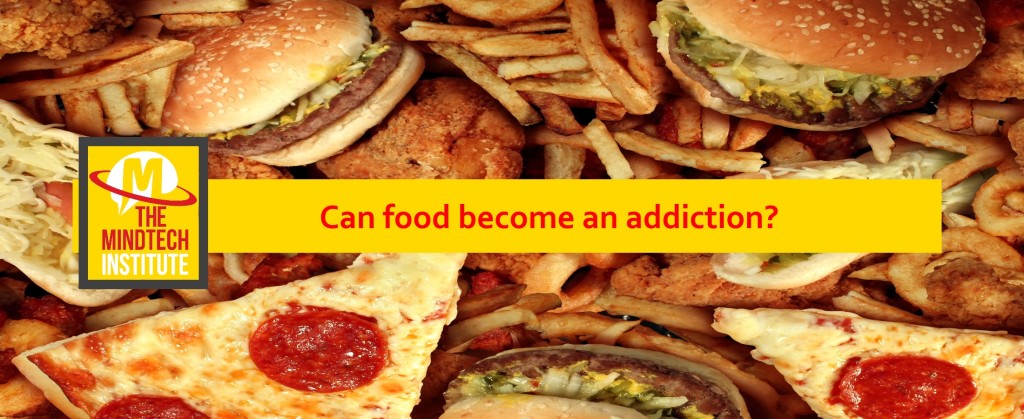
Can food become an addiction?
The MindTech Institute
Many people have asked this question before. Is there such a thing called food addiction or can food be addictive? The simple answer is absolutely yes! However, food addiction is growing rapidly and the worst part of this addiction that it hasn’t been taken seriously, based on the concept that “food” is a not drugs or alcohol. But the fact is, regardless what the substance is, it is an addiction as long as you crave it. Therefore, food can be addictive. Many people nowadays are addicted to food unknowingly or unintentionally. The risks of this addiction is devastating based on the growing obesity, diseases, cancers and deaths the world is facing in relation to food addiction and over-eating especially the junk type of food.
What is an addiction?
Generally an addiction is referred to any act or behavior someone does which he/she has no control over or can lose control in managing it. Usually there are consequences for addictions and these may vary depending on the type of the addiction.
According to the medical-dictionary as well as mainstream psychology, “an addiction is an act of persistent, compulsive and dependence on a behavior or substance”. In another word and relating to food, any dependence on substance/s to include mood-altering behaviors and can be abused is considered an addiction. Those types of mood-altering substances can be easily found in our foods today such as sugar, salt and fat.
Mainstream psychology speaks of two types of addictions, Substance Addictions such as alcoholism, drug abuse, and smoking. And Process Addictions such as gambling, spending, shopping, eating etc.
The definition of addiction above as well as most of mainstream psychology and behavioral science categorizes the eating addiction as in “Process Addictions”, but the fact is that food addiction can be also on the same level as alcohol and drugs category “Substance Addictions”. It’s true there are some minor differences but they also share lots similarities especially the addictive substances in food such as sugar, salt and fat.
The bottom line is that food can become an addiction when the act of eating is abused. It isn’t easy to avoid eating since almost every food product contains such addictive substances (sugar, salt and fat), but certainly eating can be managed in a healthy balanced portions and with knowledge and awareness.
THERE IS NO BETTER TIME THAN NOW TO KNOW THE TRUTH.
YOU DESERVE A HEALTHY AND HAPPY LIFE…
(INSTANT DOWNLOAD)!




